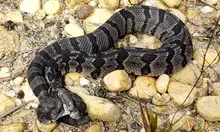
Andrea Lunerti, a Rome zoologist, claims the Italian capital has become “a proper jungle” due to a surge in snakes, oriental hornets, seagulls, and rats. The increase is attributed to high temperatures and persistent waste issues in the city.
Lunerti, known for capturing dangerous animals, reported a dramatic rise in snake sightings this summer. He explained that warm winter temperatures led to an exponential growth in the snake population, which has been drawn into the city by food waste and the rats that feed on it.
The green whip snake is the most common in Rome, although Lunerti has also dealt with vipers. Recently, he responded to calls about a snake falling onto a terrace and another in a hospital changing room. Snakes have been found in various urban locations, including gardens and residential buildings.
Oriental hornets, which migrated from North Africa and Southeast Asia, have also become prevalent in Rome. They are nesting in window shutters, vents, and ancient monuments. Their presence is linked to the city’s high temperatures and waste issues.
Lunerti emphasized the need for better waste management to address the problem and prevent further infestations of snakes, hornets, rats, and seagulls. He noted that while seagulls have reduced rat and snake numbers, they are also a growing concern.
Rome’s city council downplayed the situation, dismissing claims of a “jungle” and arguing that the increase in animal sightings does not signal a crisis. They cited zoologist Enrico Alleva, who suggested that rat predators are more active due to the lack of waste, rather than the waste itself causing the problem. The council also stated that waste management has improved this year, leading to better city cleanliness.















